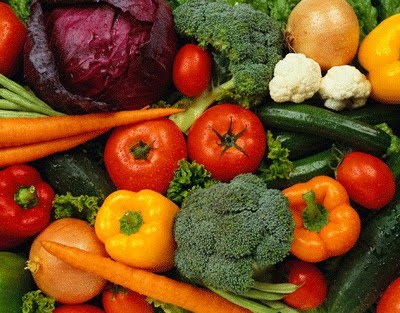Seasonal vegetables

A healthy diet requires at least 300 gr of vegetables every day. Because not every vegetable contains the same nutrients, variety is important. You can achieve this variety effortlessly by preparing native seasonal vegetables.
Moreover, these vegetables stand for freshness, taste and high nutritional value. Another nice bonus is that domestic seasonal vegetables are cheaper and environmentally friendly. After all, they require less transportation and are usually grown ecologically.
Quality homegrown vegetables can be recognized by the Flandria label. It stands for products grown according to strict requirements and subject to external control.
Spring is the season for early vegetables such as young asparagus, carrots, spinach and lettuce. Because they wilt quickly, keep these young vegetables cool and consume them quickly.
Summer provides a rich vegetable assortment, which offers many healthy options such as salads with various types of raw vegetables, dishes with classic summer vegetables such as cauliflower and beans or preparations with a southern touch. Good to know is that tomatoes, peppers, eggplants and zucchini are best stored at a cellar temperature of about 12°C. So never place them in the refrigerator as they will get watery and discolored.
There is also an abundance of homegrown vegetables in the fall, including many types of mushrooms.
With cabbages, turnips and chicory, winter also has a typical offering. A stew and chicory as raw vegetables are healthy recommendations, rich in essential nutrients.
There are no articles in this category. If subcategories display on this page, they may have articles.










